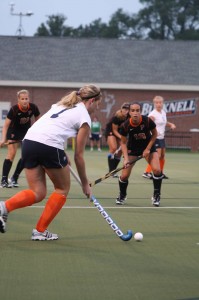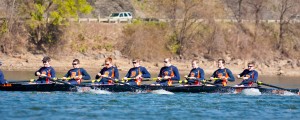Elaine Lac
Contributing Writer
Not many people truly understand the effects of racism on higher education. For Dr. Robin DiAngelo, an expert in whiteness studies, her awareness of racial issues has led her to confront the issue head-on.
On Aug. 23 at the Elaine Langone Center Forum, DiAngelo explained that racism is very much a part of society, but in a different context than during the Civil War era. Now, there is an unwillingness to mesh different racial groups.
“It’s hard for white people to get into this conversation, and like [DiAngelo] was saying, white people usually see it as a problem, but not as a personal problem. I think changing the lens from racism to whiteness makes it clearer that it is white people’s business which gets them into the conversation,” said Coralynn Davis, director of Women’s and Gender Studies.
DiAngelo used her teaching experience as an example; students who lived in predominately white areas wrote about their experience with racism. The responses generally came back as: “I was really lucky. I grew up in an all-white neighborhood, so I didn’t learn anything about racism.”
DiAngelo replied that this lack of exposure is the problem. She asked, “What if a person of color was introduced to the community?” They might respond, “We didn’t have this terrible thing [racism] until another race came. Just because there isn’t exposure doesn’t mean the problem doesn’t exist. Being closed off from multi-racial relationships leaves people uninformed, and only reinforces this ‘new racism’ where instead of being aware of race, people ignore it.”
The influence of white culture can be found everywhere. In education, which is DiAngelo’s main focus, 90 percent of teachers are white and the statistics are not shifting. In popular movies such as “The Lord of the Rings,” DiAngelo pointed out that 100 percent of the mythical creatures are white, while the enemies are portrayed as dark-skinned, indigenous looking monsters.
Her point was that racism still exists, but it doesn’t demonize people. Instead, people should be aware of other races and work to understand each other. In her last slide, she put up a picture of a cat stepping on a hot tin roof, symbolizing that people have to be careful about what they say since awareness is the first step towards the solution.
“It was interesting to see a woman who wasn’t of color giving a speech, and trying to point out the difference between the oppression that existed and trying to tell other people about white supremacy,” Aida Woldegiorgis ’16 said.
“I would like to see two things. I would like to see [the University] be more diverse, in all areas including students and faculty. I would also like us to be more competent as a community where everyone’s voices can be more easily heard,” Davis said.


